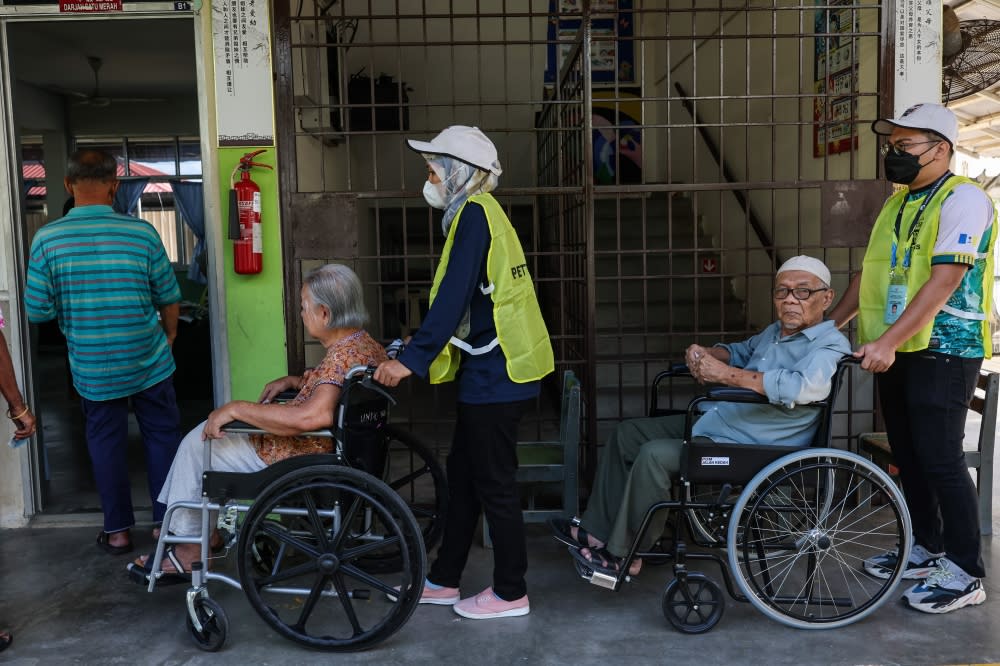Malaysia can meet 2030 Sustainable Development Goals if all pitch in, pressure group says

KUALA LUMPUR, Feb 18 — The clock is ticking for Malaysia to achieve the 16 Sustainable Development Goals (SDG) goals by 2030.
For this to happen, the Malaysian CSO-SDG Alliance said public participation would be essential.
“The very centre of SDGs is to leave no one behind,” said Malaysian CSO-SDG Alliance governance lead Jeffrey FK Phang.
Yet Phang said some Malaysians still face hindrances to their right to participation even in 2024, such as through the lack of physical access during elections.
“According to the National Health and Morbidity survey, 11.1 per cent per cent of adults in Malaysia have disabilities, that’s quite a big percentage,” he said.
In its 2023 policy brief, the Malaysian CSO-SDG alliance recommended the government take steps to improve accessibility during elections.
This included installing ramps at voting centres, preparing Braille voting strips, and having sign language interpreters to make voting more accessible.
However, Phang conceded that this would not be possible at all voting centres.
“So, we’ve got to start thinking, can they be included in advanced voting?” Phang said.
Outside of elections, Malaysian CSO-SDG Alliance co-chair Lakshmi Lavanya Rama Iyer said inadequate physical access remained a barrier to participation for people with disabilities in the country.
“When you walk around the streets of Kuala Lumpur or any city for that matter, even Putrajaya, you find the facilities are not so enabling for our friends who are less able,” said.
From tactile paving leading the blind into dead ends or trees being planted in the middle of such pathways, she said the flaws in accessibility infrastructure in the country was “quite alarming.”
While much of this is dependent on the authorities, the group said there were also many ways for ordinary Malaysians to help ensure that the right decisions were made.
Citing two instances in Kota Damansara and Bukit Kiara, Phang said residents were able to apply pressure on the authorities to protect the forests in the areas.
“In Kota Damansara, it became an election issue, that if you don’t keep the forest we won’t vote for you, and that’s how we got it gazetted,” he said.
Phang also cited the example of the Kuala Lumpur Residents Actions for Sustainable Development Association (KLRA+SD) that scrutinised the Kuala Lumpur Draft Plan 2020 when it was published by the Kuala Lumpur City Hall (DBKL).
Despite such cases, however, Phang said Malaysians have still to fully appreciate the level of participation available to them within public governance.
Lakshmi Lavanya also said the government needed to take more steps towards transparency, such as enacting freedom of information laws.
Even with these shortcomings, Malaysian CSO-SDG Alliance co-chair Kiu Jia Yaw expressed confidence in the country’s ability to meet its 2030 target.
“Malaysian society has always shown to be caring, innovative and shown to have a lot of heart,” said Kiu.
Malaysia adopted the 2030 Agenda for Sustainable Development nearly nine years ago in 2015.
The Malaysian CSO-SDG Alliance is a network of civil society organisations (“CSOs”), non-governmental organisations, think tanks, academic institutions, and social enterprises all over Malaysia whose work relates to the United Nations Sustainable Development Goals (“SDGs”).
The Malaysian CSO-SDG Alliance is a member of the National SDG Steering Committee and chairs the CSO Working Group of the SDG Technical Committee, formed by the Ministry of Economy in 2016.



